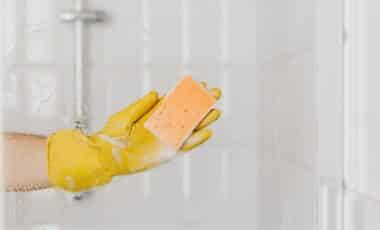
In the wake of greater awareness towards the importance of sustainability, we sought out three women from three distinct industries in Thailand to point out the issues they see on the topic, as well as share with us how they’ve decided to tackle the problems. Among them are co-founder of Refill Station, Dr Supatchaya Techachoochert, Aliza Napartivaumnuay, the founder of Social Giver, and Kamonnart Ongwandee, one of the leaders of Fashion Revolution for Thailand. From reconsidering everyday-use products to online shopping, learn how you can make small changes in your life that can lead to great, positive impact.

What’s the issue?
I grew up with volunteer trips to plant trees in remote areas of the countries, but then I came to question if this is really the way to save the environment. It was Lauren Singer’s TEDxTeen talk Why I Live A Zero Waste Life that inspired me toward the concept of Refill Station. After listening to her, I asked myself if it was truly possible to live with such a minimal amount of waste. Eventually, I realised that what Thailand needed to make the zero-waste dream possible were bulk stores.
How are you and your brand making a difference?
I don’t necessarily see Refill Station as the best way out, but it definitely is a good alternative to what currently exists and a good role model. At Refill Station, we sell daily-use products, from detergents to skincare. Customers come in with their own bottles and only pay for the products by weight. We also have eco-friendly products like bamboo straws, reusable cotton pads and many more.
What future do you want to see?
I want to make Refill Station or bulk stores something more accessible in Thailand. There are actually a lot of Thais who are very interested. We now have partners at Thammasart University and with other places around Bangkok. I hope bulk stores will be the standard in the future.
Find Refill Station inside Better Moon cafe at Sukhumvit Soi 77/1. Visit refillstationbkk.com.

If you think you are too small to make a difference, try sleeping with a mosquito.
— Dalai Lama
What’s the issue?
I see a lot of issues. I’ve always been looking out for social innovation for social and environmental issues since I never see the two as independent from each other. The real problem is the attitude people have towards our problems. We either don’t see how we’re connected to the issues, or we don’t think that one voice can make a difference.
How are you and your brand making a difference?
Because consumers’ spending power can create change, Socialgiver is created to adjust the issue, to support socially conscious brands. We know it’s not easy to change consumer behaviour, so we design the platform to emulate online shopping but with 100 per cent of the profit going to charity. Businesses donate their service to gain more brand awareness from like-minded consumers. Meanwhile, different foundations are funded to continue their good work. So, consumers get to shop and give back to society simultaneously. This giving ecosystem is what we are trying to create at Socialgiver.
What future do you want to see?
Entering our fourth year, we hope to be the go-to platform to do good. Make use of what businesses and consumers have to help those in need. We want to be a role model for other businesses on how they conduct their business. More brands have become socially conscious and have decided to work with us. It’s really up to all of us how we can make a difference. The Dalai Lama once said, ‘If you think you are too small to make a difference, try sleeping with a mosquito.’
Shop on socialgiver.com to give back.

What’s the Issue?
On April 24, 2013, thousands of workers were killed in the Dhaka garment factory incident. The industry ranks second-worst to the oil industry when it comes to pollution and exploitation. Seeing pictures of charred bodies next to branded garments made a huge impact on me as a fashion student at the time.
How are you and your project making a difference?
Fashion Revolution is a reaction to the collapse of Rana Plaza in 2013. We demand transparency from large fashion brands in terms of environmental impact and human rights. The project has spread to over a hundred countries now, proving that consumers do care. Each year we host a week-long event, involving talks, screenings, clothes swapping and workshops. All the activities share the same aim to raise awareness. Another impactful activity we do is the #whomademyclothes campaign. People will post their selfies with their clothing label exposed, tagging the brand with the hashtag, as a message of the importance of accountability.
What future do you want to see?
I want to see more sustainable fashion brands as opposed to fast fashion ones in the market. I want to help entrepreneurs who want to start their own brands do it right, despite the harsh competition against fast fashion giants. I also want to have more impact on big brands in the industry. I can see that they are caring more and more.
Visit fashionrevolution.org to join the revolution.
See also: Artist Kawita Vatanajyankur To Exploit Exploitation At The 58th Venice Biennale






